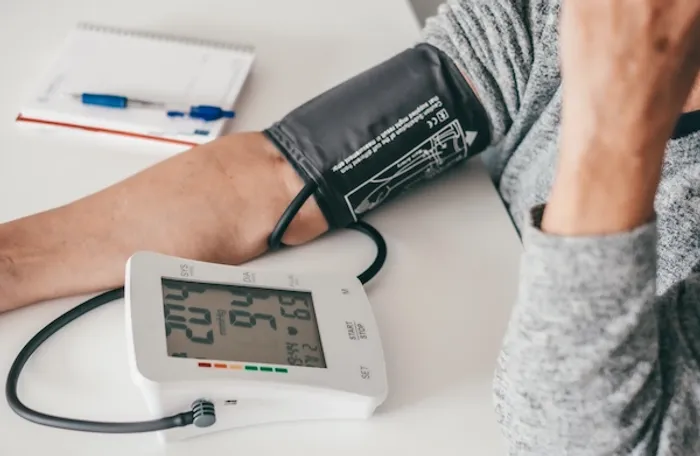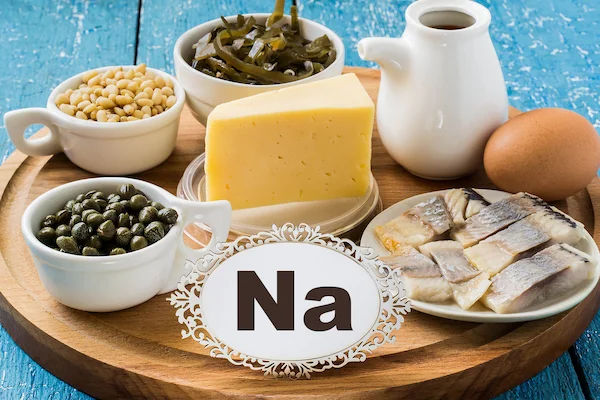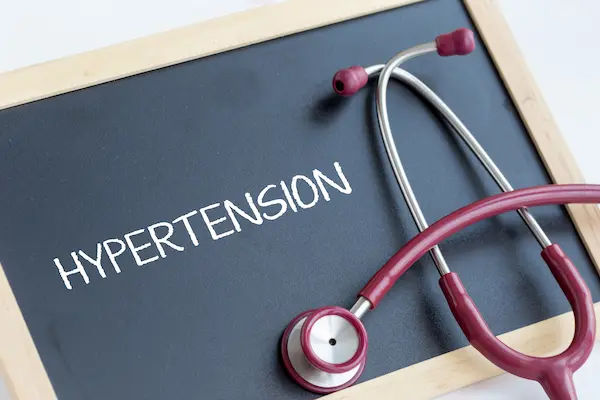Blood Pressure and Heart Health Relationship
Learn the vital link between blood pressure and heart health. Understand how high blood pressure can increase your risk of heart disease and stroke, and how to manage it for a healthier life.

Written by Dr. Dhankecha Mayank Dineshbhai
Reviewed by Dr. Mohammed Kamran MBBS, FIDM
Last updated on 13th Jan, 2026

Introduction
Maintaining good heart health is essential for a long and active life, and one of the most critical factors influencing heart health is blood pressure. High blood pressure (hypertension) is often called the "silent killer" because it can damage your heart and blood vessels without obvious symptoms. Understanding the relationship between blood pressure and heart health can help you take better care of yourself and prevent serious complications.
What Is Blood Pressure?
Blood pressure is the force of blood pushing against the walls of your arteries as your heart pumps it through your body. It is measured in two numbers:
- Systolic pressure (top number): The pressure when your heart beats.
- Diastolic pressure (bottom number): The pressure when your heart rests between beats.
A normal blood pressure reading is around 120/80 mmHg. If your readings are consistently 140/90 mmHg or higher, you may have high blood pressure.
How Does Blood Pressure Affect Heart Health?
Your heart and blood pressure are closely connected. High blood pressure forces your heart to work harder to pump blood, which can lead to:
- Heart Disease: Over time, high blood pressure can damage the arteries, making them stiff and narrow. This reduces blood flow to the heart, increasing the risk of coronary artery disease, heart attack, or heart failure.
- Stroke: High blood pressure can weaken or block blood vessels in the brain, leading to a stroke.
- Enlarged Heart: The heart muscle thickens and enlarges due to extra workload, making it less efficient.
- Arrhythmia (Irregular Heartbeat): High blood pressure can disrupt the heart’s electrical system, causing irregular heartbeats.
Symptoms of High Blood Pressure
Most people with high blood pressure do not experience symptoms, which is why regular checkups are crucial. However, in severe cases, symptoms may include:
- Severe headaches
- Shortness of breath
- Nosebleeds
- Dizziness or blurred vision
- Chest pain
If you experience any of these, consult a doctor immediately.
Consult a Cardiologist
What Causes High Blood Pressure?
Several factors contribute to high blood pressure, including:
- Unhealthy Diet (high salt, fat, and processed foods)
- Lack of Exercise
- Obesity
- Smoking & Excessive Alcohol
- Chronic Stress
- Family History of Hypertension
- Age (risk increases after 40)
How Can You Manage Blood Pressure for a Healthy Heart?
The good news is that high blood pressure can often be controlled with lifestyle changes and, if needed, medication. Here are some effective ways to keep your blood pressure in check:
1. Eat a HeartHealthy Diet
- Reduce salt (sodium) intake (avoid packaged foods, pickles, and processed snacks).
- Eat more fruits, vegetables, whole grains, and lean proteins.
- Include potassium-rich foods like bananas, spinach, and sweet potatoes.
- Limit fried foods, sugary drinks, and red meat.
2. Stay Active
- Aim for at least 30 minutes of moderate exercise (walking, swimming, cycling) most days.
- Even small changes like taking the stairs instead of the elevator help.
3. Maintain a Healthy Weight
- Losing even 5-10% of body weight can significantly lower blood pressure.
4. Reduce Stress
- Practice deep breathing, meditation, or yoga.
- Get enough sleep (7-8 hours per night).
5. Limit Alcohol & Quit Smoking
- Smoking damages blood vessels, and excessive alcohol raises blood pressure.
6. Monitor Your Blood Pressure Regularly
- Check your BP at home if you have a history of hypertension.
- Visit your doctor for routine checkups.
When to See a Doctor?
If you have:
- Consistently high blood pressure readings
- A family history of heart disease
- Symptoms like chest pain or dizziness
It’s best to consult a doctor. Early detection and management can prevent serious heart problems.
Need Help? Book a Consultation Today!
If you’re concerned about your blood pressure or heart health, Apollo 24|7 offers easy online consultations with expert cardiologists. You can also schedule a blood pressure check or heart health test from the comfort of your home.
Book a Consultation Now
Final Thoughts
Your heart works tirelessly to keep you alive, and taking care of your blood pressure is one of the best ways to protect it. Small, consistent changes in diet, exercise, and stress management can make a big difference in keeping your heart healthy for years to come.
Stay proactive, get regular check-ups, and take control of your heart health today!
Consult a Cardiologist
Consult a Cardiologist

Dr. Tripti Deb
Cardiologist
40 Years • MBBS, MD, DM, FACC, FESC
Hyderabad
Apollo Hospitals Jubilee Hills, Hyderabad

Dr. Anand Ravi
General Physician
2 Years • MBBS
Bengaluru
PRESTIGE SHANTHINIKETAN - SOCIETY CLINIC, Bengaluru
Dr. Srinivasa Prasad B V
Cardiologist
23 Years • MBBS, MD, DM (Cardiology). Fellowship in Interventional Cardiology (post DM), FSCAI Structural Heart Interventions Training (Buffalo University, New York)
Bengaluru
Apollo Hospitals Jayanagar, Bengaluru

Dr. Ankur Agarwal
Cardiologist
18 Years • MD (Medicine), DM (Cardiology)
Lucknow
Apollomedics Super Speciality Hospital, Lucknow

Dr. Vignesh Thanikgaivasan
Cardiologist
11 Years • MBBS, MD (Gen Med), DM (Cardiology) AFAPSIC, FIMSA, FSCAI
Chennai
Apollo Hospitals Greams Road, Chennai
(100+ Patients)
Consult a Cardiologist

Dr. Tripti Deb
Cardiologist
40 Years • MBBS, MD, DM, FACC, FESC
Hyderabad
Apollo Hospitals Jubilee Hills, Hyderabad

Dr. Anand Ravi
General Physician
2 Years • MBBS
Bengaluru
PRESTIGE SHANTHINIKETAN - SOCIETY CLINIC, Bengaluru
Dr. Srinivasa Prasad B V
Cardiologist
23 Years • MBBS, MD, DM (Cardiology). Fellowship in Interventional Cardiology (post DM), FSCAI Structural Heart Interventions Training (Buffalo University, New York)
Bengaluru
Apollo Hospitals Jayanagar, Bengaluru

Dr. Ankur Agarwal
Cardiologist
18 Years • MD (Medicine), DM (Cardiology)
Lucknow
Apollomedics Super Speciality Hospital, Lucknow

Dr. Vignesh Thanikgaivasan
Cardiologist
11 Years • MBBS, MD (Gen Med), DM (Cardiology) AFAPSIC, FIMSA, FSCAI
Chennai
Apollo Hospitals Greams Road, Chennai
(100+ Patients)




